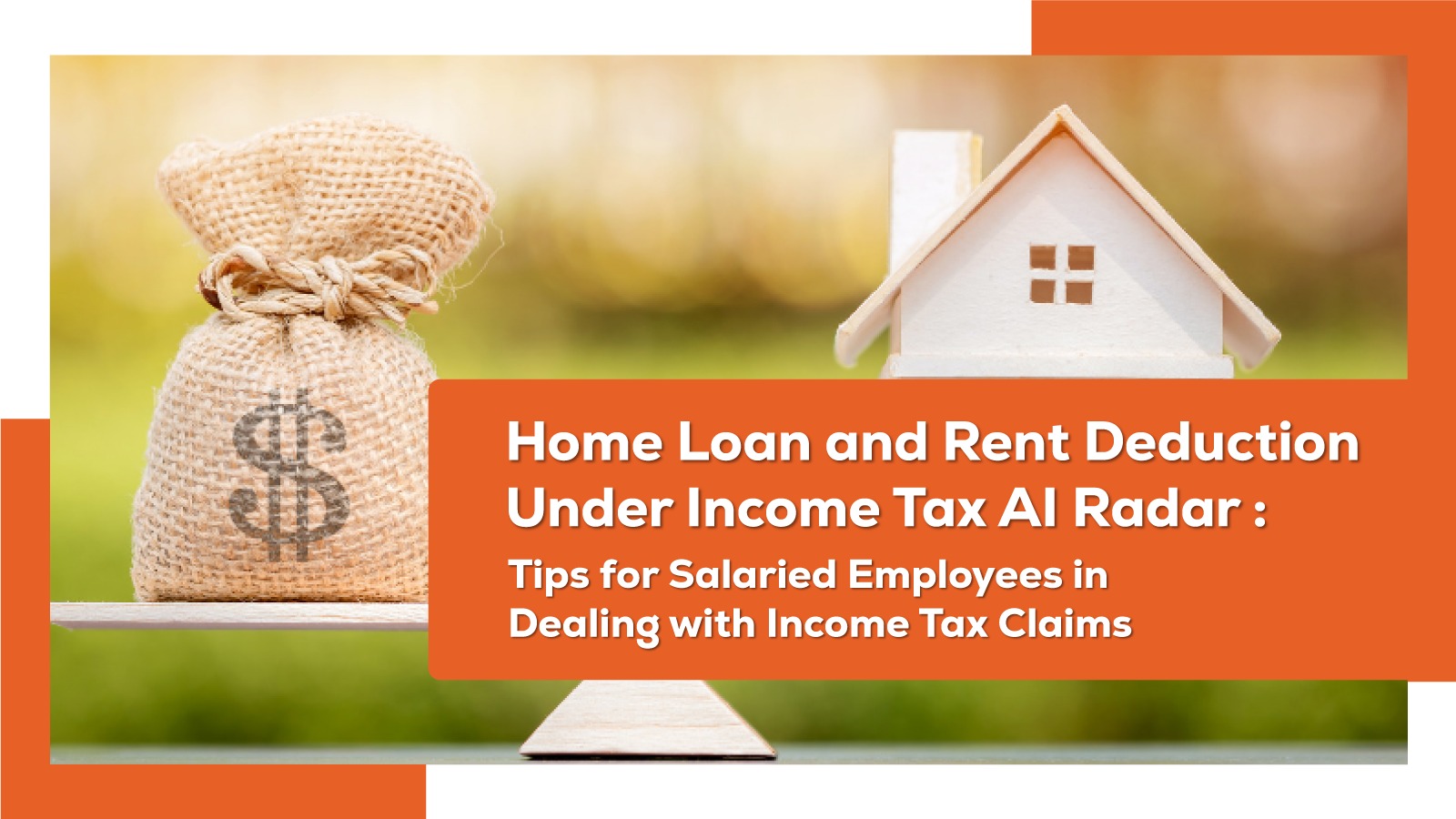In the realm of income tax, artificial intelligence (AI) has emerged as a game-changer, empowering the tax department to delve deeper into suspect deductions claimed for house rent and housing loan interest. As the cost of living and education soar, some taxpayers have resorted to dubious means to reduce their tax burdens, prompting the income tax department to scrutinize certain claims with precision.
Chartered accountants reveal that a common tactic involves taxpayers asserting residency in rented properties belonging to close relatives, even though the rental income from such arrangements remains unreported. Similarly, others have been found making false claims of housing loan interest deductions. As the IT department adopts AI-powered analysis of tax returns, patterns and anomalies are effortlessly unveiled, with a particular focus on house rent allowance (HRA) and home loan repayments.
Chartered accountants have highlighted the importance of adherence to regulations. While IT returns are self-assessed, the department maintains a watchful eye, evaluating the credibility of claims against available evidence. For instance, salaried employees seeking HRA deductions must possess a valid rent agreement, rent payment receipts, and genuinely reside in the rented property. Such exemptions fall under the purview of the old income tax regime.
The rise in inflation has further complicated matters, leaving many salaried individuals struggling to meet investment requirements for tax savings. Some are influenced to claim exemptions based on advice from unqualified sources, inadvertently inviting closer scrutiny from the tax authorities. The section 80C for life insurance premiums, tuition fees, housing loan repayments, and other exemptions under section 80D for medi claim premiums are among the commonly exploited areas.
As per the chartered accountants, the filing returns for claiming exemptions and deductions does not necessitate documentary evidence. This absence of stringent verification mechanisms tempts salaried employees to explore ways to minimize tax liabilities, albeit through questionable practices.
A thought-provoking suggestion emerges from within the accounting fraternity – with the high cost of living taken into account, the government should consider raising the basic exemption limit or standard deductions for those with salaries up to Rs 10 lakh per annum. Such a measure could potentially alleviate the financial strain and discourage resorting to questionable tax-saving methods.
Here are some tips for taxpayers to avoid scrutiny by the ITD:
- Have All Necessary Documentation: When claiming deductions for expenses such as house rent or housing loan interest, it is crucial to have all the required supporting documents. These documents act as evidence to substantiate your claims in case of any scrutiny by the ITD. For instance, if you are claiming HRA, make sure to keep a copy of your rent agreement, rent receipts, and proof of residing in the rented property. Similarly, for housing loan interest deductions, keep records of loan statements and interest payment receipts.
- Be Honest and Transparent: Honesty is the cornerstone of tax compliance. Always provide accurate information in your Income Tax (I-T) returns. Falsifying or misrepresenting financial details can lead to serious consequences, including penalties and legal issues. By being transparent in your tax filings, you contribute to a fair and trustworthy tax system.
- Claim Only Entitled Deductions: Ensure that you claim deductions that you are eligible for under the tax laws. Avoid attempting to claim deductions that you do not qualify for, as it may attract unwanted scrutiny. Familiarize yourself with the eligible deductions based on your financial situation and make legitimate claims accordingly.
- Consult with a Tax Advisor: Tax laws can be complex, and it is natural to have doubts about certain deductions. When in doubt, it is always advisable to seek guidance from a qualified tax advisor or a chartered accountant. A tax advisor can provide accurate information, help you understand the intricacies of tax laws, and ensure you make appropriate deductions, keeping you on the right side of the law.
By following these tips, taxpayers can navigate the tax filing process with confidence and reduce the likelihood of attracting scrutiny from the ITD. Compliance with tax regulations not only ensures a smooth tax journey but also contributes to the nation’s economic growth and development. Remember, staying informed, honest, and well-prepared can help you sail through tax season with ease.













